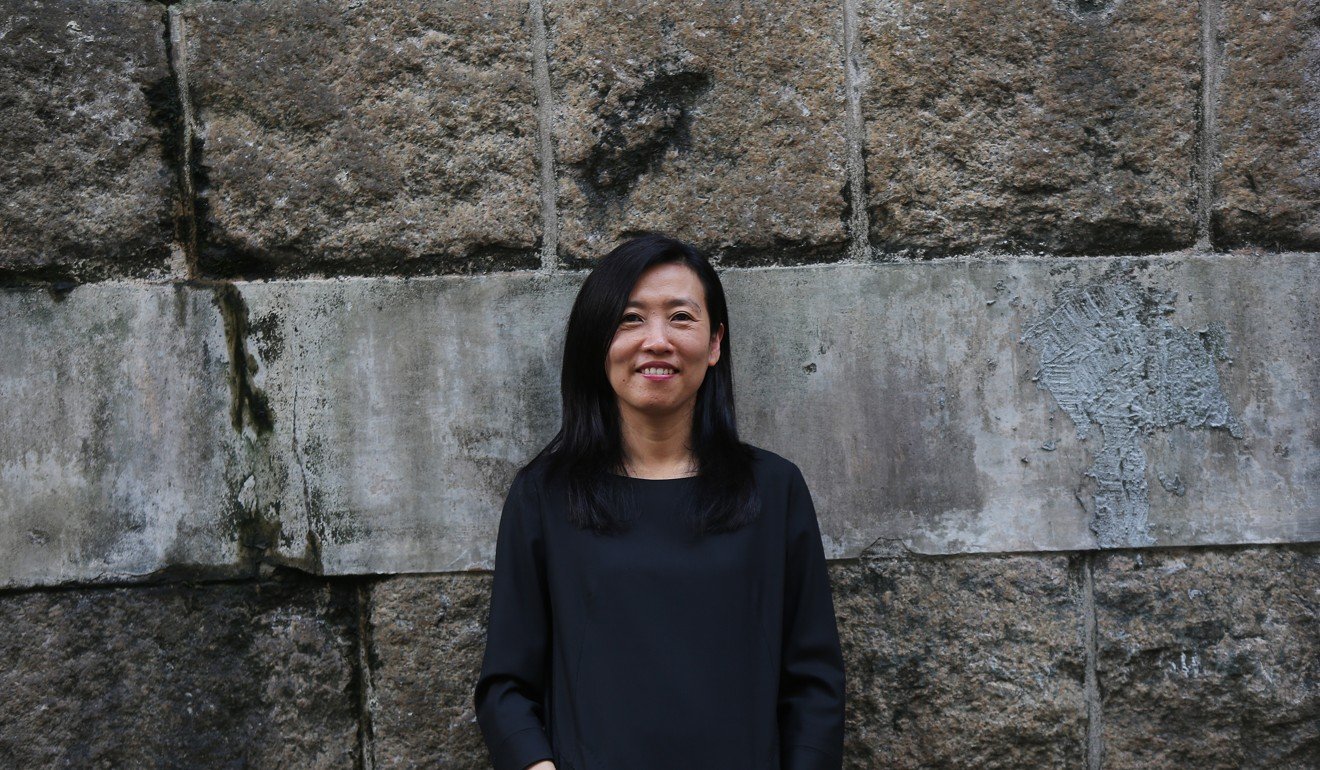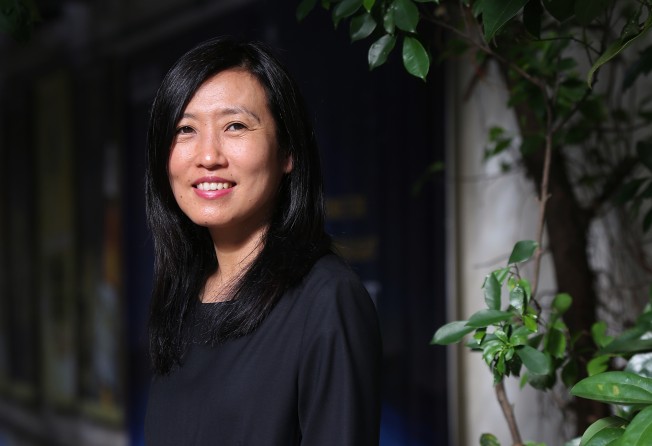
Why Lion Rock spirit is a fading memory for Taiwan-born novelist Lolita Hu and what ‘gloomy’ Hong Kong needs to do to get it back
- Extraordinary life pressures and shortage of smooth political conversations taking their toll on city, writer says
- Hu is quitting her role as Taiwan’s top cultural promoter in the city after two years’ service

Lolita Hu Ching-fang now calls Hong Kong home but the Taipei-born novelist, who is quitting her role as Taiwan’s top cultural promoter in the city after two years’ service, believes the energy and confidence she noticed when she first arrived 20 years ago has faded.
“Hong Kong amazed me when I first came here in 1998,” said the outgoing director of the Kwang Hwa Information and Culture Centre in Hong Kong.
Then in her 20s, Hu enjoyed the freedom of expression that was not available in Taiwan, where young women were traditionally expected to hold their tongue.
The Lion Rock spirit – Hong Kong’s pride in resilience and diligence, named after a symbolic landmark and a popular 1970s TV series – also moved her deeply as Hu saw people striving to fulfil their dreams, believing success could be had through hard work.
“But today, the social atmosphere is so gloomy because of the extraordinary life pressures and the shortage of smooth political conversations,” she said.
Hu, who has lived and worked in a number of world cities including Paris, Tokyo and New York, called on Hong Kong’s leaders to lend an ear to the public and refrain from labelling and suppressing public conversations as political defiance. The city needed to talk to solve problems and work out its future, she said.
“The ethos of cities lies in the diversity of voices,” Hu said.
“There can’t be development without conversations. And all the great cities around the world have been moving forward by resolving conflicts and problems through public engagement.”

The cosmopolitan award-winning novelist, who was born in 1969 and studied English literature and drama in Taiwan and the United States, has worked for a variety of publications ranging from lads’ magazines to the South China Morning Post.
With no political affiliation, Hu accepted an invitation from Taiwan’s ruling and independence-leaning Democratic Progressive Party (DPP) and became director of Kwang Hwa in September 2016, succeeding art critic Lu Chien-ying.
“Taiwan is my country, Hong Kong is my home,” Hu said.
“I thought, ‘Why not?’ [to the invitation] because I would be able to serve both places from this position.”
But, she described the overall political situation between Taiwan and mainland China over the past two years as “cold”.
“Some people gave me the cold shoulder when I first began my work at Kwang Hwa,” she said.
Relations between the mainland and Taiwan have deteriorated since DPP chairwoman Tsai Ing-wen won the presidential election in 2016. But the cultural exchanges between Hong Kong and Taiwan, according to Hu, remained vibrant.
“The intimacy between Hong Kong and Taiwan built through cultural exchanges can help people feel less lonely when we have to remain cautious in politics,” she said.
Globalisation has reached a stage where it is backfiring, leaving the whole world searching for the right way to settle chaos and restore harmony
Despite her passion and pleasure in the role, Hu told Taiwan’s Ministry of Culture in October that she had decided not to renew her contract.
“It was not a political decision,” she said. “I am a professional author with a writing plan.”
Hu has no intention of leaving Hong Kong, although she said the economic and political imbalances left her deeply concerned.
“Hong Kong is a city of workaholics. But the economic structure has been distorted to such an extent that more and more hardworking people can’t afford even a very basic living space,” Hu said.
“Such life pressure must be vented and resolved through public conversations … but unfortunately, such public actions are often quickly labelled as some serious political challenges against authority by those in power.”
But Hong Kong is not alone in struggling to talk and listen, according to Hu.
“Globalisation has reached a stage where it is backfiring, leaving the whole world searching for the right way to settle chaos and restore harmony,” she said.
“People should learn to listen and adjust themselves. In particular, the powerful should listen to the powerless.”